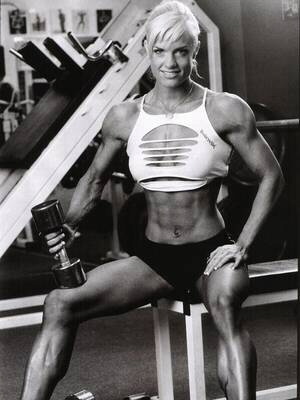
Some people make a very critical mistake after their exercise session – they don’t eat!
They think, why eat all the calories back that I just burned off? Problem is, if you don’t eat, your body can’t recover.
Yes, you did just burn off some calories and if your goal is fat loss, that’s the aim. BUT, at the same time you need to understand that it’s the total amount of calories you burn over the entire day that determines if you lose weight. Not just what you burn around your workout.
If you think that you’ll keep burning fat by not eating after you workout, you are, unfortunately, incorrect.
Right after you workout your body is going to be primed to use whatever nutrients you do feed it, shuttling them off towards the muscle cells that need it. It’s least likely to store these nutrients as body fat. You’re actually less likely to gain fat by eating after a workout than you are at any of the other times during the day.
So what should your plan of action be?
Have Your Bread
During this time, you get CARBS! That’s right, whether you are dieting or not, if you are going to eat carbs, this is the time to do it – and you should. Shorting yourself on carbs would be shorting yourself on maximum performance at your next workout because this is when your body is going to replenish those muscle glycogen stores, helping give you the fuel you will then use next time you hit up the gym.
And to add to that fact, you want them to be simple carbs! That means bagels, white rice, sugary-kiddy cereal – Lucky Charms! –you name it, eat them all.
They are going to raise your insulin levels, which then gets the protein you consume at that time into the cells that much quicker.
How many total calories coming from carbs you have should be based on your current weight, your goals, and the workout intensity you just completed or will be completing later on.
Heavier people and those who are doing very demanding workouts will need more. Those who are dieting will need less since, well, you are eating fewer calories overall. Those who are trying to build muscle should really fill up during this time since you are in your most anabolic state.
Contrary to what many people believe, fruit is not actually the best choice right after a workout because it has a higher fructose content. Fructose will not enter the muscle cells like glucose (or dextrose) will, therefore, it should be avoided if at all possible.
Supply The Building Blocks
The second part of the post-workout meal equation will be protein component, what supplies your muscles with the building blocks you need to repair and build new muscle tissue.
Most individuals will use a protein powder at this point as its convenient and rapidly digested. If you much prefer using a solid source of protein you can as well; the most important thing is that you just get some protein in.
Aim for about 25 to 50 goals, depending on what your total calorie intake should be.
How Long This ‘Window’ Lasts
So just how long does this ‘window’ of opportunity exist for? If you don’t get food in during the seconds after a workout have you missed out? Or, do you have a little bit of a leeway – enough time to shower and get out of your workout clothes first?
While it may be slightly more advantageous to eat right after the workout, if there is a ten to fifteen minute lag period, it’s not going to be the end of the world. Do try and get this meal or shake in though within the hour, as after that, the rate of uptake by the muscle cells will be slower and you won’t experience the same recovery rate.
So, next time you’re finishing up your workout, do NOT skip out on eating thinking you’ll be furthering yourself in the game of fat loss. All you’ll do is hinder your progress – even more so if you happen to be trying to gain muscle mass.